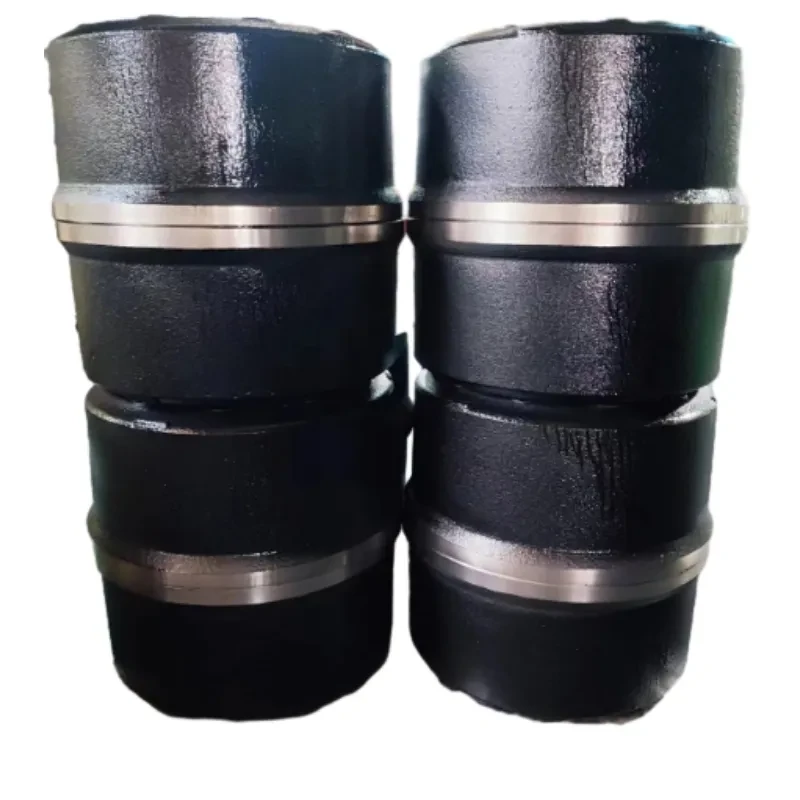grease in brake drum
Understanding the Impact of Grease in Brake Drums
When it comes to vehicle maintenance, few components are as crucial as the braking system. The brake drum is an integral part of this system, especially in vehicles that utilize drum brakes. However, one of the common issues that can severely compromise the performance and safety of brakes is the presence of grease in the brake drum. Understanding the implications of grease contamination can help vehicle owners recognize the importance of regular maintenance and apply preventive measures.
What is a Brake Drum?
A brake drum is a cylindrical component that houses the brake shoes. When the driver presses the brake pedal, hydraulic force pushes the brake shoes against the inner surface of the drum, generating friction that slows down or stops the vehicle. This simple yet effective mechanism is essential for safe driving, but it is also susceptible to various types of contamination, one of the most concerning being grease.
Sources of Grease Contamination
Grease can enter the brake drum from several sources. One common culprit is worn or failed wheel bearings. When these components deteriorate, they can leak grease, which may find its way into the brake drum. Another potential source is improper maintenance practices, such as over-greasing or using the wrong type of grease during service. Additionally, environmental factors such as road debris or contact with other lubricants can contribute to grease contamination in the drums.
Impact on Brake Performance
The presence of grease in a brake drum can lead to several adverse effects on performance. One of the most immediate consequences is a reduction in braking efficiency. The grease acts as a lubricant and reduces the friction necessary for stopping the vehicle. This diminished friction can lead to longer stopping distances, which poses a significant safety risk.
Moreover, contaminated brake shoes can wear unevenly due to the slippery surface created by the grease. This uneven wear can compromise the structural integrity of brake components, leading to potential failure and increase repair costs. In extreme cases, excessive grease can even cause the brakes to become completely ineffective, creating a life-threatening situation for the driver and passengers.
grease in brake drum

Symptoms of Grease Contamination
Recognizing the signs of grease in your brake drum is key to preventing potential hazards. Common symptoms include a noticeable reduction in braking power, a spongy or unresponsive brake pedal, and unusual noises such as squeaking or grinding sounds during braking. Some drivers might also experience vibrations in the vehicle when applying the brakes, further indicating that the braking system is compromised.
If you suspect that grease may be contaminating your brake drums, it is crucial to address the issue promptly. Ignoring these signs can lead to more severe problems down the line, including complete brake failure or costly repairs.
Preventive Measures
To prevent grease contamination in brake drums, regular maintenance is essential. Vehicle owners should ensure that their wheel bearings are inspected and greased properly during scheduled services. Using the correct type of grease and applying it in moderation is critical to avoiding leaks that can affect the braking system.
Furthermore, routine checks of the brake system itself should be part of any vehicle maintenance plan. Brake drums, shoes, and other related components should be inspected for signs of grease damage, wear, or any other abnormalities. Early detection of grease-related issues can save you time and money while significantly enhancing the safety of your vehicle.
Conclusion
Grease in brake drums is a serious concern that can compromise braking performance and jeopardize safety. Understanding its sources, symptoms, and potential impacts can empower drivers to take proactive measures in maintaining their vehicles. Remember, regular inspections and proper maintenance are key to ensuring that your braking system remains in optimal condition, keeping you safe on the road. By addressing grease contamination promptly, you can preserve the effectiveness of your brakes, protect your vehicle, and ensure the safety of everyone on board.
-
The Power and Reliability of Brake DrumsNewsAug.27,2025
-
The High-Quality Truck Brake DrumsNewsAug.27,2025
-
Quality Brake Drums for Reliable PerformanceNewsAug.27,2025
-
Get the Quality Semi Trailer Brake Drums for Your FleetNewsAug.27,2025
-
Everything You Need to Know About Brake DrumsNewsAug.27,2025
-
Enhance Your Vehicle's Performance with Reliable Brake DrumsNewsAug.27,2025
-
Truck Drum Brake Spring Replacement ProcedureNewsAug.22,2025


